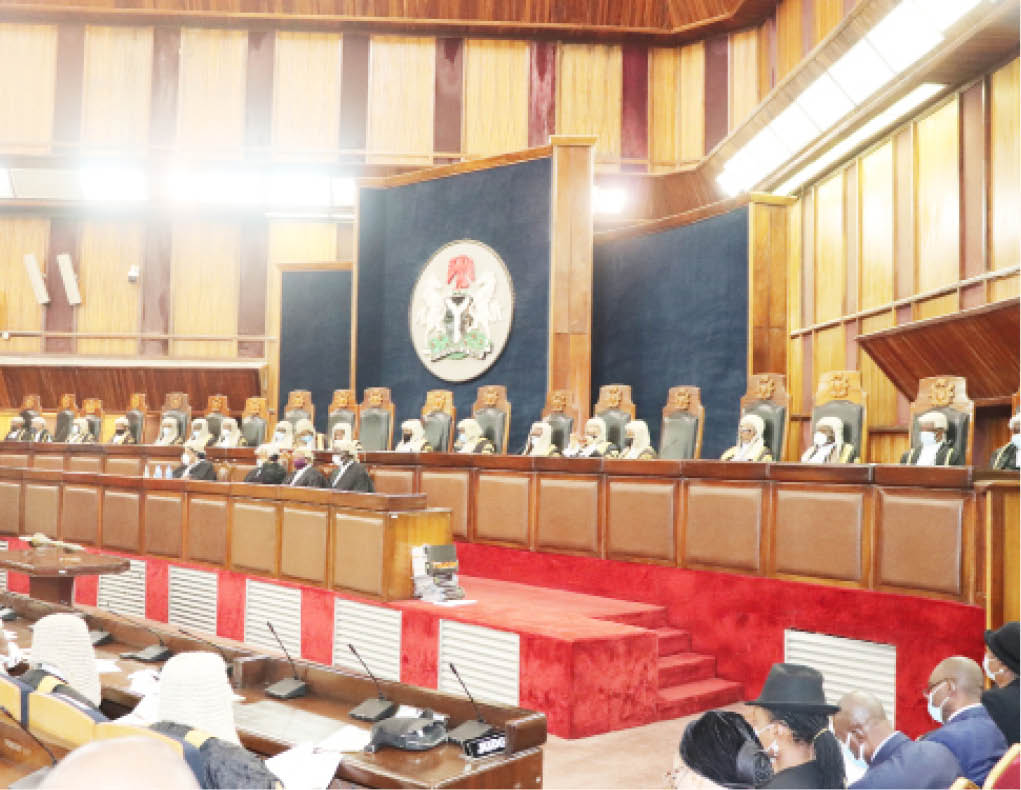The Supreme Court has dismissed the appeal by the Peoples Democratic Party (PDP) seeking the disqualification of the president-elect, Bola Tinubu and the vice president-elect, Kashim Shettima, over alleged double nomination.
In a unanimous judgement on Friday, the five-member panel of the justices led by Justice Inyang Okoro held that the appeal was frivolous, grossly incompetent and lacks merit.
Reading his decision, Justice Inyang Okoro said the attitude of the PDP amounted to misleading the court after they held that the lower court made a finding of fact that Shettima had knowingly allowed himself to be nominated into two different constituencies for the February 25 presidential election in breach of Section 35 of the Electoral Act, 2022; and presented the Shettima case as similar to Uche Nwosu’s double nomination for Imo State governorship in 2018.
Justice Okoro clarified that the lower court actually held that the PDP failed to show evidence that Shettima contested for the vice presidency while still the senatorial candidate.
Supreme Court to decide, Shettima’s ‘double nomination’ today
Floating Nigeria Air contempt of court, operators tell Buhari
Earlier, in the lead judgement, Justice Adamu Jauro affirmed the judgements of the Federal High Court, Abuja and the Court of Appeal declaring that the PDP lacked the locus standi to maintain the action, which robbed the courts of the jurisdiction to hear it.
The apex court awarded the sum of N2 million in extra cost against the PDP for the appeal to the earlier N5 million by the Court of Appeal.
The apex court held that a political party cannot challenge the actions of another party, no matter how manifestly unlawful that action is, adding that the PDP did not participate in the APC primary that produced the party’s candidate.
The PDP, through their lawyers, Joe Agi (SAN) and Mike Ozekhome (SAN) had accused Shettima of double nomination as senatorial candidate for Borno Central Senatorial District and vice-presidential candidate of the APC, which they contended breached the provisions of sections 29(1), 33, 35, and 84(1)(2) of the Electoral Act, 2022.

 Join Daily Trust WhatsApp Community For Quick Access To News and Happenings Around You.
Join Daily Trust WhatsApp Community For Quick Access To News and Happenings Around You.


